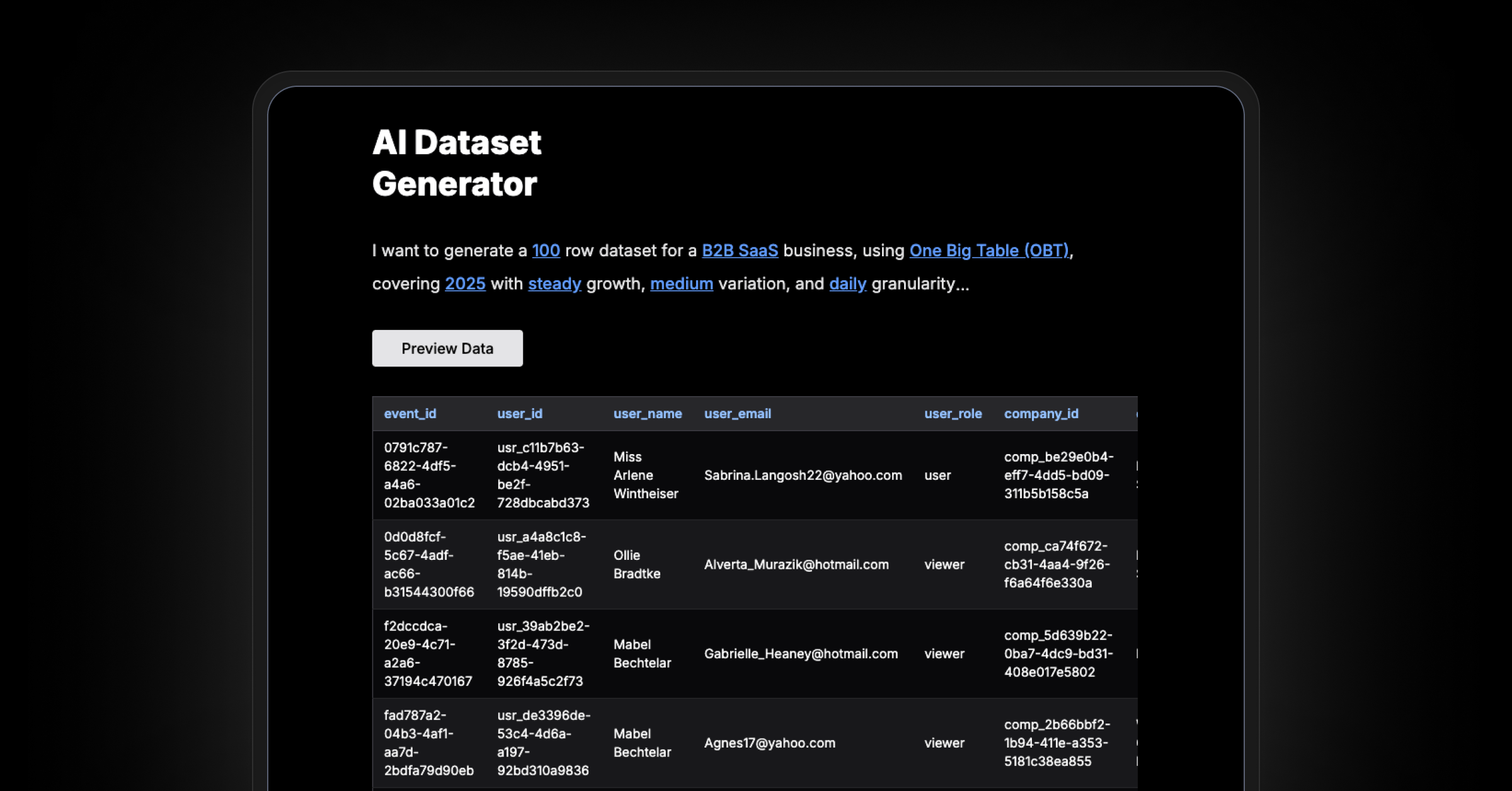These are the docs for the Metabase master branch. Some features documented here may not yet be available in the latest release. Check out the docs for the latest version, Metabase v0.55.
Embedded analytics SDK - Using the SDK with Next.js
Embedded analytics SDK is only available on Pro and Enterprise plans (both self-hosted and on Metabase Cloud). You can, however, play around with the SDK on your local machine without a license by using API keys to authenticate your embeds.
Some notes on using the Embedded analytics SDK with Next.js. The SDK is tested to work with Next.js 14, although it may work with other versions.
See a sample Next.js app that uses the SDK.
SDK components with Server Side Rendering (SSR) or React Server Components
The SDK components render only on the client side and not on the server side.
Compatibility layer for server-side rendering (SSR) (DEPRECATED)
Note: Compatibility layer for server-side rendering (SSR) is no more needed and was deprecated. If you use it, change your imports from @metabase/embedding-sdk-react/next to @metabase/embedding-sdk-react.
Handling authentication
App Router and Pages Router have different ways to define API routes. If you want to authenticate users from your server with JWT, you can follow the instructions below. But if you want to authenticate with API keys for local development, see Authenticating locally with API keys.
Using App Router
You can create a Route handler that signs people in to Metabase.
Create a new route.ts file in your app/* directory, for example app/sso/metabase/route.ts that corresponds to an endpoint at /sso/metabase. This route handler should generate a JWT for the authenticated user and return the token in a JSON object with the shape { jwt: string }.
import jwt from "jsonwebtoken";
const METABASE_JWT_SHARED_SECRET = process.env.METABASE_JWT_SHARED_SECRET || "";
const METABASE_INSTANCE_URL = process.env.METABASE_INSTANCE_URL || "";
export async function GET() {
const token = jwt.sign(
{
email: user.email,
first_name: user.firstName,
last_name: user.lastName,
groups: [user.group],
exp: Math.round(Date.now() / 1000) + 60 * 10, // 10 minutes expiration
},
// This is the JWT signing secret in your Metabase JWT authentication setting
METABASE_JWT_SHARED_SECRET,
);
// The user backend should return a JSON object with the JWT.
return Response.json({ jwt: token });
}
Then, pass this authConfig to MetabaseProvider
import { defineMetabaseAuthConfig } from "@metabase/embedding-sdk-react";
const authConfig = defineMetabaseAuthConfig({
metabaseInstanceUrl: "https://metabase.example.com", // Required: Your Metabase instance URL
});
Using Pages Router
You can create an API route that signs people in to Metabase.
Create a new metabase.ts file in your pages/api/* directory, for example pages/api/sso/metabase.ts that corresponds to an endpoint at /api/sso/metabase. This API route should generate a JWT for the authenticated user and return the token in a JSON object with the shape { jwt: string }.
import type { NextApiRequest, NextApiResponse } from "next";
import jwt from "jsonwebtoken";
const METABASE_JWT_SHARED_SECRET = process.env.METABASE_JWT_SHARED_SECRET || "";
const METABASE_INSTANCE_URL = process.env.METABASE_INSTANCE_URL || "";
export default async function handler(
req: NextApiRequest,
res: NextApiResponse,
) {
const token = jwt.sign(
{
email: user.email,
first_name: user.firstName,
last_name: user.lastName,
groups: [user.group],
exp: Math.round(Date.now() / 1000) + 60 * 10, // 10 minutes expiration
},
// This is the JWT signing secret in your Metabase JWT authentication setting
METABASE_JWT_SHARED_SECRET,
);
// The user backend should return a JSON object with the JWT.
res.status(200).json({ jwt: token });
}
Then, pass this authConfig to MetabaseProvider
import { defineMetabaseAuthConfig } from "@metabase/embedding-sdk-react";
const authConfig = defineMetabaseAuthConfig({
metabaseInstanceUrl: "https://metabase.example.com", // Required: Your Metabase instance URL
});
Read docs for other versions of Metabase.

